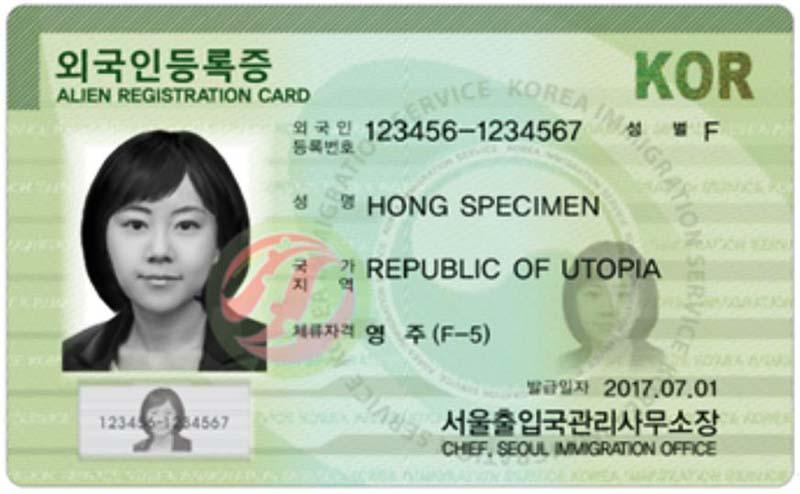
The Ministry of Justice on June 1 said it would rename the Alien Registration Card using more neutral terms. Belgian expatriate Julian Quintart, who pushed for the dropping of the term "alien," on June 24 gives an interview with Korea.net in Seoul's Itaewon. (Kim Sunjoo)
By Xu Aiying and Lee Jihae
Seoul | June 24, 2020
The number of foreign residents in Korea on short- or long-term stays was 2,054,621 in 2018, accounting for about 4% of the nation's overall population per a report by Statistics Korea last year.
Thus about four out of 100 people on the streets, in the subway or at restaurants nationwide are non-Koreans.
Given the country's rapid transformation into a multicultural society, the ensuing changes in government policy and systems as well as social perceptions are also gaining attention.
The Ministry of Justice on June 1 announced that the term "alien" in the Alien Registration Card (ARC) would be replaced after 54 years. This change was brought about by a group under the ministry unofficially dubbed Social Integration Immigrant Mentors.
The group is composed of 35 immigrants from 22 countries spanning Europe, Asia and the Americas. All of them have lived in Korea for a long time and share their know-how and experiences in adjusting to life here.
Belgian expatriate Julian Quintart, who has become a TV personality in the country, is a member of this group. In a June 24 interview with Korea.net in Seoul's international Itaewon district, he said in fluent Korean that dropping the term "alien" is a "small movement but a big change for foreigners.
"For foreigners like me whose native language isn't English, there's no longer a misunderstanding of being seen as 'aliens' or 'strangers,'" he said. "The perception of my identity while I live in Korea has become clearer."
"The ARC is like a first greeting for foreign residents of Korea," he added. "As a member of Korean society, I'm very happy to participate in a big change brought on by a small movement."
The ministry plans to rename the ARC using a more neutral term such as "Foreign National Card" or "Foreign Residence Card."

The Ministry of Justice will rename the Alien Registration Card using a more neutral term, such as "Foreign National Card" or "Foreign Residence Card." (Ministry of Justice)
This year is Quintart's 16th as a resident of Korea.
He has worked as a TV personality, DJ and a mentor to immigrants, saying he feels changes are afoot for foreign residents in Korean society.
"My Korean life began in the sticks in Seocheon-gun County, Chungcheongnam-do Province. At the time, people were surprised to see a foreigner who could speak Korean," he said. "Now, I'm quite surprised to see many foreigners who've never lived in Korea but speak Korean better than I do."
"As Korea is becoming a multicultural society, its acceptance of foreigners has significantly expanded from the past," he added. "In the past, people treated me as a foreigner but now, I think they just see me as a resident and member of Korean society."
Quintart still remembers how he felt upon gaining permanent residence in Korea two years ago.
"It might not seem significant but the change in my residence status allowed more freedom in my activities here, and truly changed my whole life in Korea," he said.
The Belgian also mentioned what foreigners should know about the ARC. "Foreigners are subject to a fine if they don't update the address on the ARC within 14 days of moving to a new place," he said. "Some foreigners new to Korea might be unaware of this. Paying the fine can leave a negative mark and cause a problem when applying for other visas later."
On his plans, Quintart said, "I'm planning to make the first guide with the Ministry of Justice for foreigners getting registered as residents of the country."